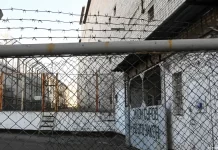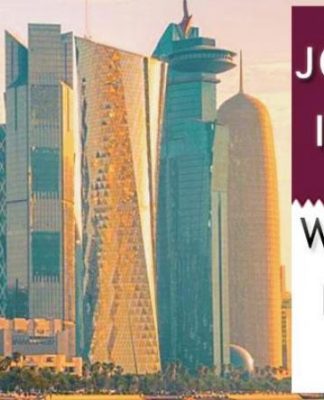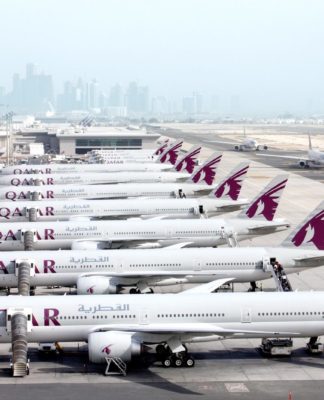CONFLICTSISRAEL
Israel-Hamas war: German minister criticizes Rafah action
Published 05/25/2024Published May 25, 2024last updated 14 hours agolast updated 14 hours ago
German Economy Minister Robert Habeck said Israel was breaking international law with its offensive in Rafah, but also urged Hamas to lay down its arms. DW has the latest.
https://p.dw.com/p/4gGpd
Smoke billows after Israeli bombardment in eastern Rafah
Israel has moved forward with its operation in Rafah despite warnings from the US, Germany and others Image: AFP via Getty Images
Skip next section What you need to know
What you need to know
German Minister Robert Habeck urges Israel stop its Rafah offensive
Israel said ‘it has not and will not’ target Rafah’s civilian population
EU’s Borrell says ICJ Rafah ruling must be implemented
German newspaper reports that suspected Hamas members planned attacks in Germany
Here are the latest developments from the Israel-Hamas war and the wider Middle East region on Saturday, May 25.
Skip next section Israel breaking international law, says Germany’s Habeck
16 hours ago16 hours ago
Israel breaking international law, says Germany’s Habeck
German Economy Minister Robert Habeck said on Saturday Israel’s military offensive in Gaza was breaking international law.
“The famine, the suffering of the Palestinian population and the attacks in the Gaza Strip are, as we are now seeing in court, incompatible with international law,” Habeck said, in reference to a ruling by the International Court of Justice (ICJ) calling on Israel to end its offensive in Rafah.
“Israel must not carry out this attack, at least not in the way it did in the Gaza Strip before, bombing refugee camps and so on,” Habeck added.
Habeck also said that the war could end immediately if Hamas lays down their arms. Hamas is designated as a terror organization by the US, Germany, EU and others.
In separate comments on Saturday, German Chancellor Olaf Scholz was keen to emphasize that Israel should “respect the rules of international law.”
“That is why we have always been very clear in saying that we cannot imagine an offensive in Rafah without terrible, irresponsible human losses,” Scholz said.
https://p.dw.com/p/4gHYV
Copy link
Skip next section G7 finance ministers to call on Israel not to disrupt banking links
20 hours ago20 hours ago
G7 finance ministers to call on Israel not to disrupt banking links
A statement from a meeting of G7 finance ministers will call on Israel to maintain correspondent banking services between its banks and those in the Palestinian territories so that vital transactions can be carried out and trade and services continued.
The Palestinian economy, which uses the Israeli shekel as legal tender, is reliant on the Israeli banking system for any transactions with the rest of the world.
The G7 call comes after far-right Israeli Finance Minister Bezalel Smotrich on Wednesday said he planned not to renew a banking waiver that is due to expire within weeks.
The waiver protects Israeli banks from lawsuits accusing them of “transferring funds to terror groups” when carrying out transactions involving the Palestinian Authority.
The G7 ministers meeting in Stresa, Italy, will also urge Israel “to release withheld clearance revenues to the Palestinian Authority, in view of its urgent fiscal needs.”
Israel has blocked transfers of the tax funds it collects on behalf of the Palestinian Authority, which administrates part of the West Bank, since shortly after the October 7 terror attacks by Hamas, the organization that governs the Gaza Strip.
In the statement, the G7 finance leaders also called for the removal or relaxation of other measures “that have negatively impacted commerce to avoid further exacerbating the economic situation in the West Bank.”
https://p.dw.com/p/4gHK7
Copy link
Skip next section Spain calls on Israel to comply with ICJ ruling on Rafah
20 hours ago20 hours ago
Spain calls on Israel to comply with ICJ ruling on Rafah
The Spanish government demanded that Israel comply with an order by the UN’s top court to halt its military offensive in Rafah in southern Gaza.
It stressed that Friday’s ruling by the International Court of Justice (ICJ) was legally binding.
“The precautionary measures set out by the ICJ, including that Israel should cease its military offensive in Rafah, are compulsory. Israel must comply with them,” Foreign Minister Jose Manuel Albares wrote on X, formerly Twitter.
“The same goes for a ceasefire, the release of the hostages and access for humanitarian aid [to Gaza],” he added.
Spain has been one of the European countries most critical of Israel over the Gaza war.
On Wednesday, Spain, Ireland and Norway said their governments would recognize a Palestinian state.
https://p.dw.com/p/4gHJr
Copy link
Skip next section EU’s Borrell says ICJ Rafah ruling is binding
22 hours ago22 hours ago
EU’s Borrell says ICJ Rafah ruling is binding
The EU’s top diplomat, Josep Borrell, has said that the order handed down by the top UN court to Israel to cease its military offensive in the southern Gaza city of Rafah must be complied with.
“ICJ [International Court of Justice] orders are binding on the Parties and they have to be fully and effectively implemented,” Borrell wrote on social media platform X, formerly known as Twitter.
Although Israel says its assault on Rafah aims to root out the last remnants of the Palestinian militant group Hamas, which killed some 1,200 Israelis in an October 7 raid on southern Israel, it is known to be causing huge suffering for thousands of Palestinian civilians in the city.
In their ruling, the judges at the ICJ, also known as the World Court, called the humanitarian situation in Rafah “disastrous” and said more measures were needed to prevent further harm to the civilian population.
Israel has responded to the ruling by saying the actions in Rafah were part of a “defensive and just war” following the October attacks and said its offensive would not “inflict on the Palestinian civilian population in Gaza conditions of life that could bring about its physical destruction in whole or in part.”
Rulings are legally binding on countries which formally accept the ICJ — which include Israel (and South Africa) — but in practice, they are unenforceable by the court.































